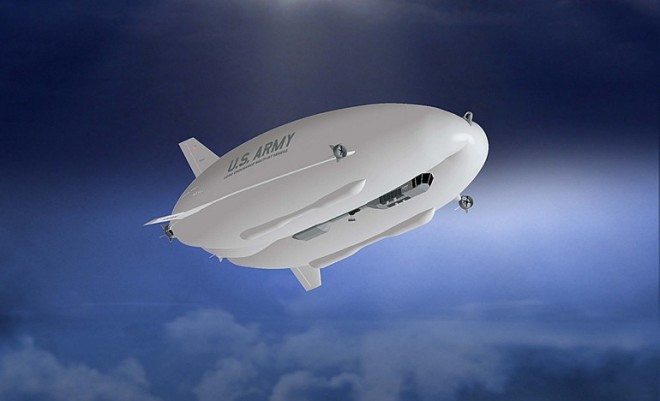A huge helium-filled airship with military and commercial uses has been unveiled near Los Angeles. It is still experimental, but a full-sized working model should be finished in a few years.
The prototype unveiled in this immense World War II hangar near Los Angeles is just half the size of the final working model. But the prototype is massive, at 75-meters-long. It is wide, flattened on the top, and covered with silver-colored Mylar, a tough kind of polyester.
The craft was built with $35 million in funding from the Pentagon and the U.S. space agency, NASA. The final version will double the length and provide eight times the cargo space, carrying up to 60 metric tons, all without ground support, says Shenny Yao of the company Aeros.
“No airports, no ground crew,” said Yao. “You do not need anything.”
The airship has a rigid structure made of carbon fiber and aluminum, rotating propellers for takeoff and landing, and a ballast system that compresses helium to control the lift. Sometimes the craft is heavier than air, and sometimes lighter.
Aeros founder, an immigrant from Ukraine named Igor Pasternak, says it is not an airplane and not an ordinary airship. “It is really its own category. It is a new type of air vehicle,” said Pasternak.
With advanced computer controls, the ship can reach out-of-the-way places, bringing turbines to wind farms and moving other kinds of cargo thousands of kilometers, says Shenny Yao.
“Oil and gas” said Yao. “We talk to {companies that ship} fresh products like flowers. We talk to the fashion industry”
If it works as planned, the craft could reduce shipping costs, says Igor Pasternak. “It is the workhorse of the air,” he said. “It is the truck of the air.”
The prototype ship has been tested inside the hangar, rising and descending under its own power. Company spokesmen say an outdoor test is expected sometime this year. If the craft works as planned, and potential customers show interest, a commercial version could be production in two to three years.











